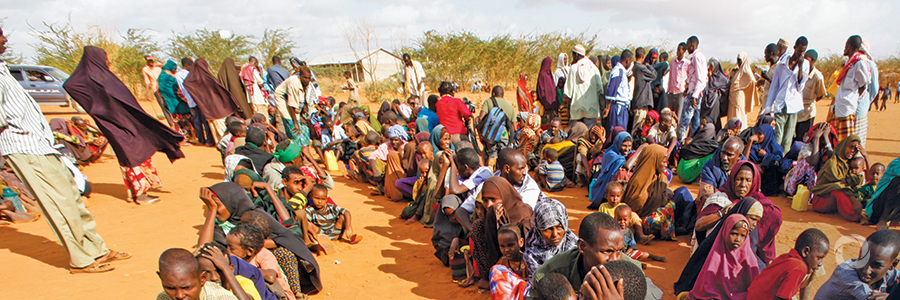As more than 1,000 children continue to flee South Sudan, on average every day in search of safety, the region’s refugee crisis has become a children’s crisis, UNICEF said today, on World Refugee Day.
Since violence erupted in South Sudan in December 2013, more than 1.8 million people have crossed into neighbouring countries. In just one year the population of refugees in Uganda has more than doubled from 500,000 to more than 1.25 million, making Uganda now host to the fastest growing refugee emergency in the world.
“More than one million children have been forced from their homes in South Sudan, often amid horrific violence. Day after day, week after week, they are being received by countries such as Uganda, Ethiopia and Kenya. Despite great efforts on many fronts, the systems in these countries are tremendously stretched,” UNICEF’s Regional Director for Eastern and Southern Africa, Leila Pakkala.
Ahead of Uganda’s International Solidarity Summit on Refugees (June 22-23), UNICEF noted that 86% of all refugees in Uganda are women and children. Indeed, Uganda is now Africa’s leading refugee-hosting country, having jumped from the eighth largest refugee-hosting country in the world in mid-2016 to the third largest today, after Turkey and Pakistan. The Government of Uganda, UNHCR, UNICEF, WFP and other humanitarian partners on the ground are working tirelessly to respond to the more than 740,000 refugees who have arrived in Uganda since July 2016. Such dramatic numbers are placing excessive pressure on State and host community resources, especially social services that are critical to children’s well-being.
“The Ugandan Government has a progressive and generous open door policy to refugees. This approach provides better prospects for refugee children in Uganda than in many contexts globally. The very real hope is that such a model is supported widely across countries,” UNICEF’s Regional Director for Eastern and Southern Africa, Leila Pakkala.
The Government of Uganda and the United Nations are appealing for $8 billion in funding for both emergency response and resilience interventions to Uganda’s refugee and refugee-hosting population over the next four years. Within this appeal, UNICEF in Uganda requires nearly $50 million in 2017 as well as $30 million in each year from 2018-2020 to provide critical health, nutrition, water and sanitation, education, early childhood development, adolescent development, and child protection interventions, to both refugee and host community children.
For Ethiopia and Kenya, as part of their Humanitarian Action for Children’s Appeal for Ethiopia and Kenya, UNICEF requires $13.6 million to respond to the new influx of South Sudanese refugees in the Gambella Region of Ethiopia, and $7.3 million for the refugee response in Kenya.
Source: UNICEF. Read full article here.
21 June, 2017

